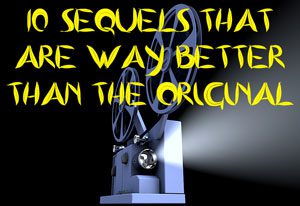“September” (1987) is a small gem buried in Woody Allen’s rich catalog, filmed entirely in a country house built on a soundstage and improving on “Interiors” from a decade earlier. The difference is that the problems of these six people are readily apparent on the outside. A viewer doesn’t have to work as hard.
6 great performances
Unless we’re trying to pick the best performance. For a while, I was tempted to go with Elaine Stritch as matriarch Diane, a once-beautiful actress who jokes about aging enough that we see it actually bothers her.
Still, Diane is the life of any party, including an evocative one that’s being prepared for in a rather dark house on an overcast late-summer day in Vermont.

“September” (1987)
Director: Woody Allen
Writer: Woody Allen
Stars: Mia Farrow, Sam Waterston, Dianne Wiest
By the time of the end credit saying “filmed entirely at Kaufman Astoria Studios, New York,” I realized “September” doesn’t have any outdoor scenes.
But sound and lighting effects of thunder, lightning and crickets — plus moments like Sam Waterston’s Peter peeking through the blinds and commenting on the stars – nudge our brains into thinking of this as “an outdoor movie.”
While the minimal sets call to mind stage plays, especially when Stritch does her broader acting, “September” is most notable for its close-up, intimate scenes.
Triangles of hurt
Here is where Dianne Wiest’s sad face is so effective at conveying Stephanie’s love for Peter; it’s a downer of a development because she doesn’t want to abandon her off-screen husband and children. On the other hand, it’s a blast to feel something again. And will it be her last chance to feel something?
Running as an undercurrent through all six characters is a quiet desperation to have more childlike feelings akin to first love, rather than being responsible and correct. Sometimes it’s spoken aloud; in a striking piece of acting, Diane looks into a mirror and says what’s missing from her face is “a future.”
And Diane has lived a life wild enough that she’s been offered an advance on a biography. Plus she’s genuinely happy with husband Lloyd (Jack Warden). So there might be some “grass is always greener” syndrome running through this family.
The narrative revolves around DVD-cover subject Lane, though, and if believable on-screen crying is a measurement in our little acting contest, Mia Farrow wins. She loves Peter, who only has eyes for Steph. Meanwhile, Lane is aware she’s breaking the heart of widower neighbor Howard (Denholm Elliott), who only has eyes for her.
“September” has interconnected “hurt triangles” more so than “love triangles.” Allen cues us that there won’t be happy endings forthcoming. Yet I wouldn’t describe it as dreary or tragic, adjectives that can apply to “Interiors.”
Interiors burst forth
Still, it’s not a comedy. I did almost smile at the sequence wherein the lights go out at the house party and minor chaos ensues, but “September” rarely goes broad. In every scene, I was thinking of people – and never in terms of their position in the narrative.

Peter, a struggling novelist renting the guest house, could be a rakish villain in a lesser portrayal of this material. After all, he takes a sweet, lonely woman for granted while he shakes up her sister’s life with his lovelorn advances, all under one roof.
But Allen and Waterston give us an angle into Peter’s humanity: He is taken aback by his own feelings, as we see in his tentative, awkward words to Steph. (She later admits she’s attracted to his vulnerability. And the Waterston-Wiest chemistry is such that it will now color my viewings of “Law & Order” reruns.)
Peter is not pleased with himself for stirring things up – indeed, he’s quick to accept blame – but we can see he’s as blindsided as anyone else, even if the feelings come from within.
A viewer feels like an outsider at the start, because the roots of the relationships are in place before we join the group. When throwaway lines mention Lane has been at the house “recovering,” it helped that I had glanced at a synopsis explaining she has had mental health issues.
Because we join the story midway and have to put together a few puzzle pieces, we don’t reach our zenith of caring about this sextet until the end of the 82 minutes. A short-length bias probably hurts it on lists of great Allen movies.
But while the run time is slight, the material isn’t. “September” shows a master filmmaker taking us into the engrossing depths of (seemingly) simple family and romantic relationships.

